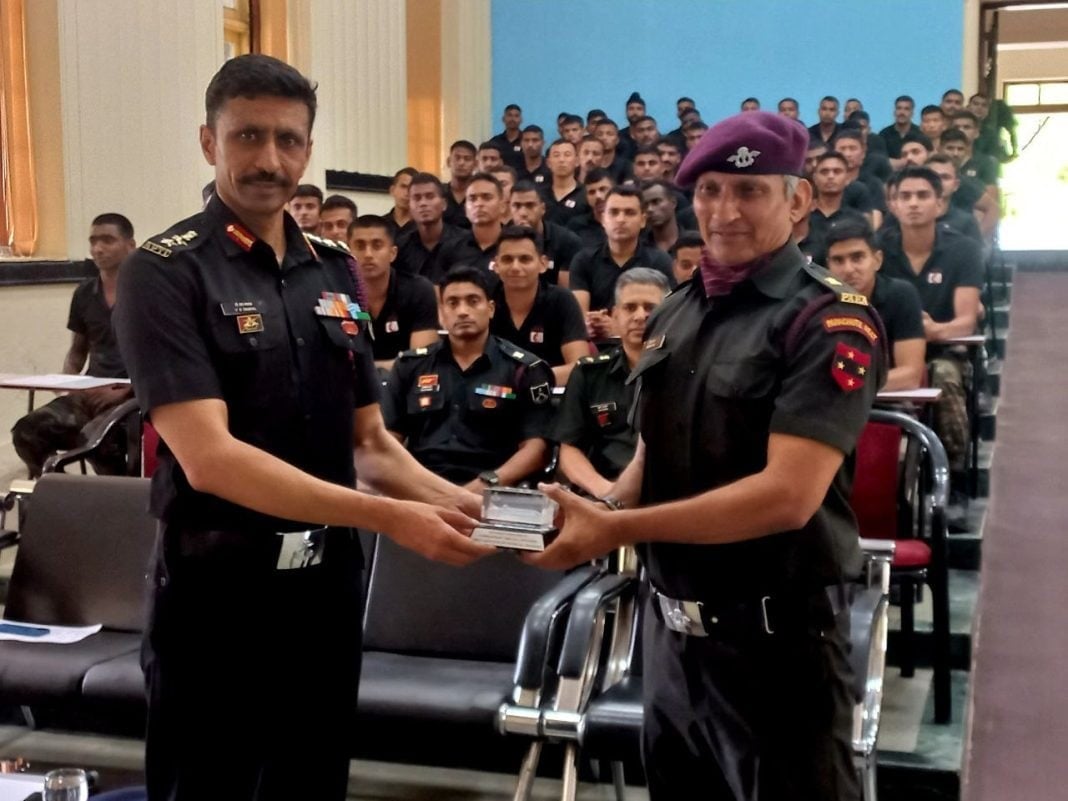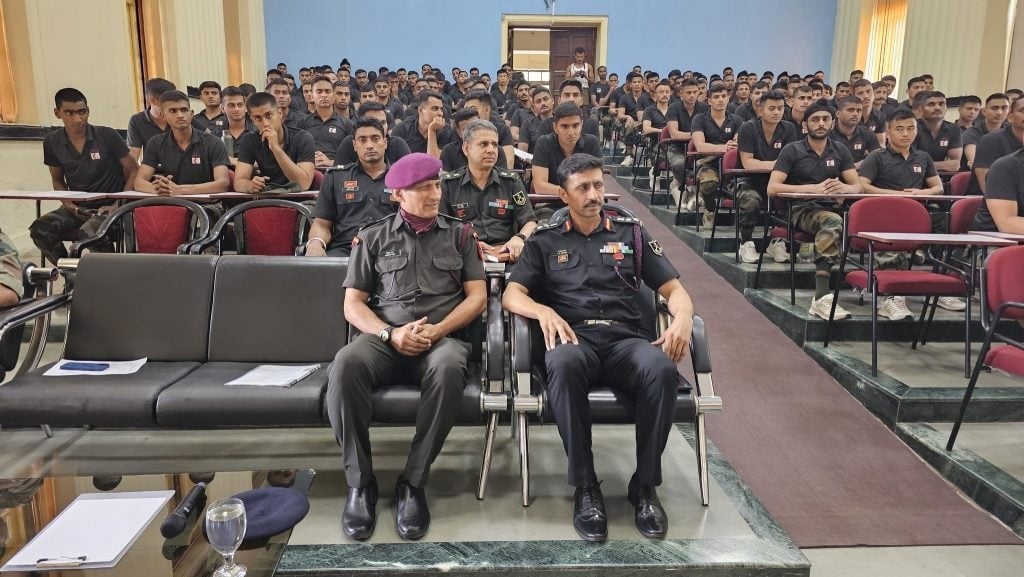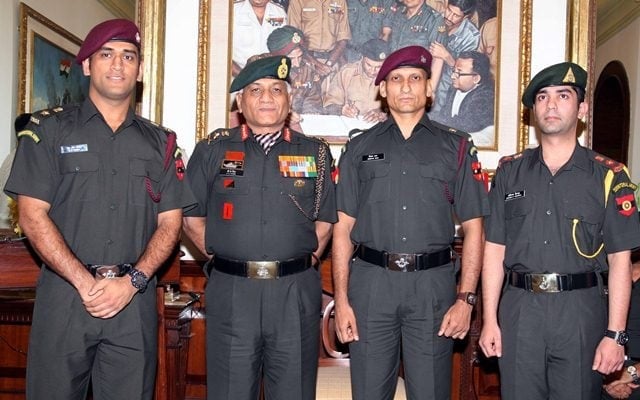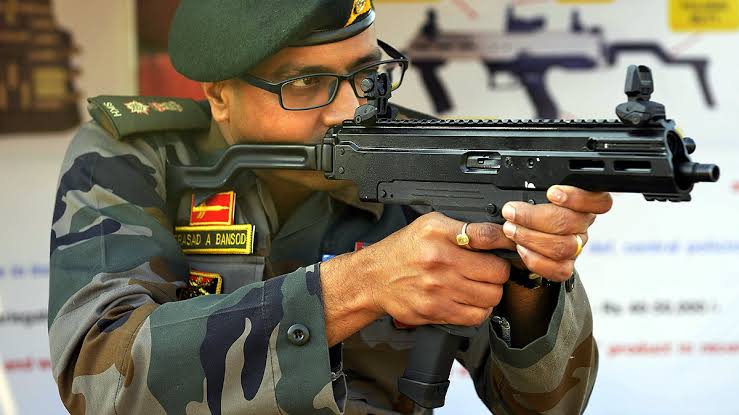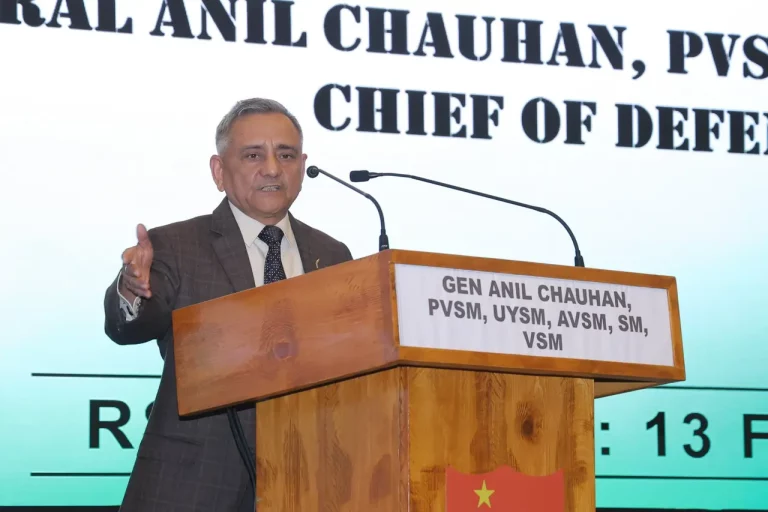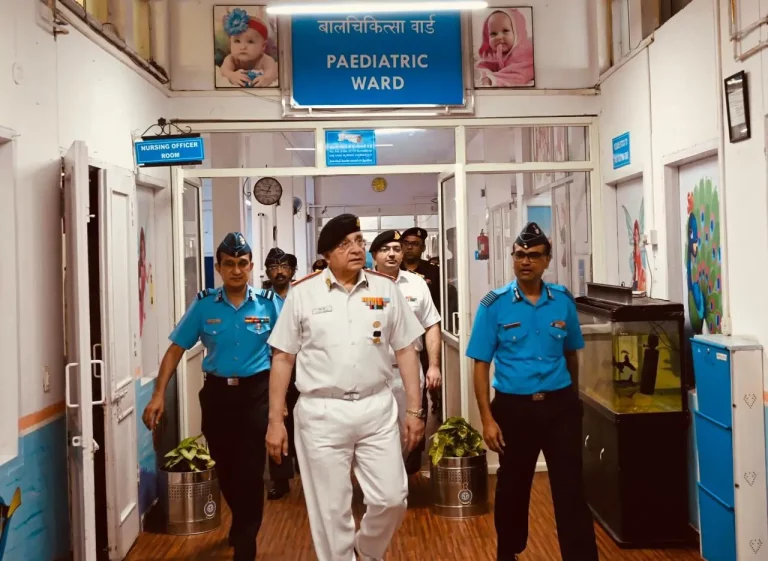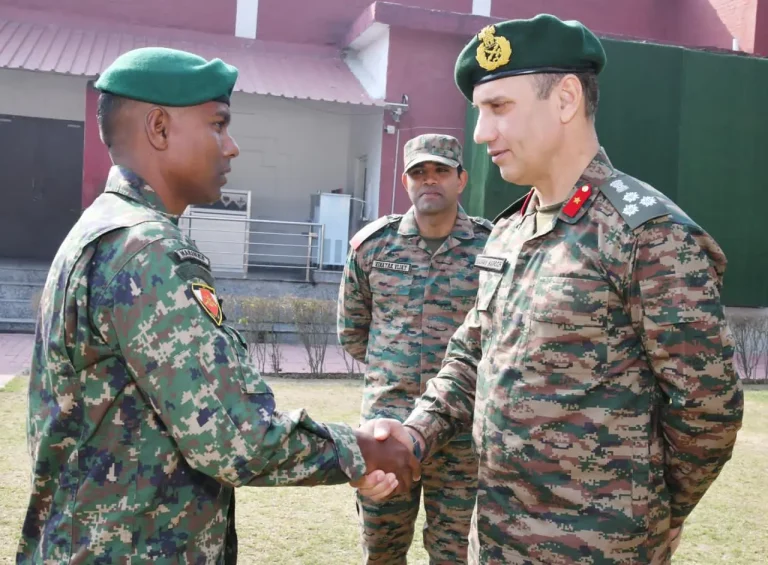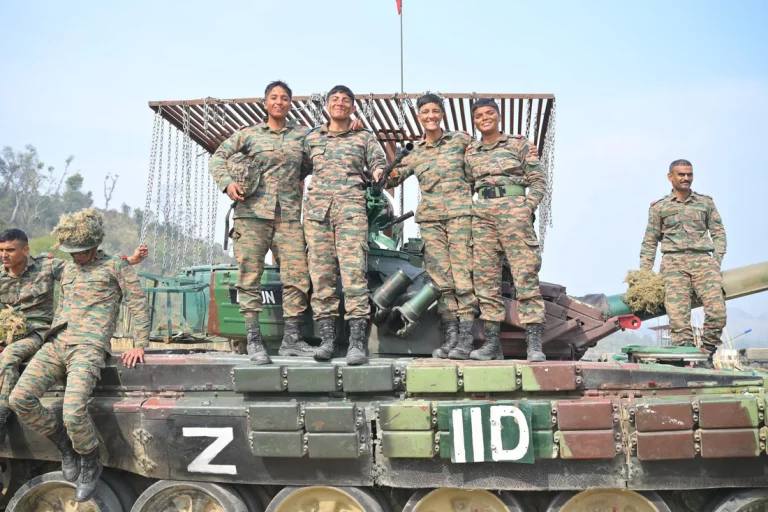Honorary Major Deepak Rao stands as a pivotal figure in India’s defence forces. He is renowned as the pioneer of Close Quarter Battle Training, architect of Army Martial Arts Routine (AMAR), RAO SYSTEM OF REFLEX SHOOTING and the ABC (Army Battle Combatives) method.
As he nears his 60th birthday, Dr. Rao’s unparalleled dedication to modernizing CQB techniques has left a lasting mark on the Indian Army. He is best known as the architect of the Army Martial Arts Routine (AMAR) and the ABC (Army Battle Combatives) method—key frameworks that continue to shape the way India’s elite soldiers prepare for modern warfare.
Early Involvement and Background
Dr. Rao began his association with the Indian defence establishment in the early 1990s, following his passion for martial arts and close-combat disciplines. His unwavering commitment to developing homegrown, specialized training modules propelled him to the forefront of the Indian Army’s modernization drive for CQB.
Pioneering Contributions
ACCS: Advanced Commando Combat System
Post-Kargil War (1999), the Indian Army recognized the necessity for modern and high-impact close-combat training. Dr. Rao responded by developing the Advanced Commando Combat System (ACCS)—a dedicated system focusing on CQB. This initiative significantly bolstered the skill sets of thousands of troops across different units, including Paramilitary forces, the Para Special Forces (Para SF), Naval MARCOS, IAF GARUD, NSG, and other elite groups.
Rao System of Reflex Shooting
Between 2006 and 2007, Dr. Rao took on the task of innovating reflex shooting techniques, tailoring them to the fast-paced demands of insurgency and anti-terror operations. Known as the “Rao System of Reflex Shooting,” this framework helped modernize firing drills at the Corps Battle Schools of the Northern Command and later for Eastern Command’s Counter Insurgency Training School.
ABC Methodology
The ABC (Army Battle Combatives) method emerged as a logical evolution of Dr. Rao’s research. It specializes in quick-termination tactics crucial for high-stakes combat scenarios. By integrating these concepts into the wider Indian Army training curriculum, Dr. Rao has effectively modernized the armed forces’ unarmed combat approach.
AMAR Program
The Army Martial Arts Routine (AMAR) was developed to institutionalize close-combat skills within the Army. Dr. Rao played an instrumental role in refining AMAR, especially post-Galwan Valley clash (2020). His subsequent evaluations and recommendations helped incorporate lethal and efficient ABC techniques into AMAR, thus bringing India’s unarmed combat capabilities on par with global standards.
ALTERED TIMELINE OF MAJOR MILESTONES
| Year | Milestone | Description |
|---|---|---|
| 1994 | Began involvement in military training | Started training various units of Indian defence forces. |
| 1998 | Intensified CQB focus | Collaborated with specialized units to modernize close-combat training. |
| 1999 | Kargil War | Kargil War created an urgent need for modern CQB training. |
| 2000–2005 | Developed ACCS (Advanced Commando Combat System of CQB) | Post Kargil, Rao researched and imparted specialized CQB training to Indian Army, Paramilitary, Para SF, Naval MARCOS, IAF GARUD, NSG, and other Elite Units. Recognized with Army Chief citations from Gen. S. Padmanabhan (2001) and Gen. J.J. Singh (2003). |
| 2006–2007 | Founded the Rao System of Reflex Shooting | Helped modernize CQB & Reflex shooting for Northern Command, conducting courses at the Corps Battle Schools. Directed by then Army Commander Lt. Gen. Deepak Kapoor. |
| 2008 | Expanded training & authored Commando Training Books | Modernized CQB & Reflex shooting for Eastern Command, directed by Army Commander Gen. V.K. Singh. Authored two books on commando training, with 1,000 copies distributed for free by the Home Minister & the Army Chief. |
| 2009 | Resource for Indian Home Ministry | Trained 12 State Police ATS/QRT squads in modern CQB methodology for counter-terror operations. |
| 2010 | 3rd Army Chief Citation from Gen. V.K. Singh | Directed to train a nucleus of Para SF Instructors in Reflex Shooting, enabling further dissemination among other troops. |
| 2011 | Commissioned as Honorary Major in TA battalion of Para Regt | Conferred the rank of Honorary Major for his noteworthy contributions to military close-quarter combat techniques. |
| 2019 | 4th Army Chief Citation from Gen. Bipin Rawat | Authored Strike to Kill – Army Battle Combatives, advocating for an indigenous Unarmed Combat (UAC) method. Trained multiple elite forces in ABC. |
| 2020 | Galwan Valley Clash | Underscored the critical need for advanced close-combat training reforms, paving the way for enhancements in AMAR. |
| 2023 | Evaluated AMAR at AIPT | Under the directive of the Army Chief, he provided recommendations to further refine AMAR with ABC termination techniques. |
| 2024 | Integration of ABC Techniques into AMAR + 5th Army Chief Citation | AMAR curriculum officially modernized to include advanced ABC techniques. Recognized again with a citation from the Army Chief, Gen. Manoj Pande. |
Training Programs Beyond the Army
Dr. Rao’s expertise is not confined to the Indian Army alone. He has conducted specialized training for the Indian Air Force and the Indian Navy, notably training IAF GARUD and Naval MARCOS units. Numerous Paramilitary forces, National Security Guard (NSG) commandos, and state police Anti-Terrorism Squads (ATS) have also benefited from his pioneering reflex-shooting and CQB methodologies.
Major Contributions of Honorary Major Deepak Rao
| Contribution | Impact |
|---|---|
| ACCS Method of CQB | Enhanced close-combat skills and martial arts integration in the Indian Army. |
| Rao System of Reflex Fire | Revolutionized reflex shooting and contributed to advanced CQB drills in high-intensity zones. |
| ABC Methodology | Introduced quick termination techniques for high-stakes combat scenarios. |
| AMAR Program | Developed by the Indian Army as an indigenous routine for unarmed combat, now enhanced with ABC developed by Major Rao. |
| Other Services | Trained MARCOS, NSG, GARUD, Paramilitary & 12 State Police ATS squads in modern CQB. |
| Author | Authored 10 books on Military Training, Political Science, Martial Arts, Medicine & Zen. |
His work was partnered by his wife Dr Seema Rao, aka Wonder Woman of India, who was conferred by Narishakti Award in 2019 by President of India for her work in CQB.
Conclusion
As Honorary Major Deepak Rao approaches a new milestone in his life, his unwavering commitment to the enhancement of India’s combat readiness remains an inspiration within the country’s defence fraternity. From introducing the ACCS method to refining AMAR with advanced ABC techniques, Dr. Rao’s influence ensures that India’s forces remain agile, effective, and ever-prepared in the face of modern challenges.
